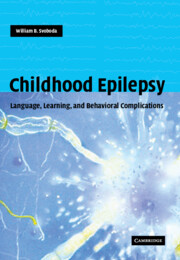Summary
I am struck by the debates over issues in epilepsy. The literature suggests that for every article, there is an equal and opposite article, and for every finding of the existence of a problem, there is one denying the existence. With therapies, there are three sides to the argument: those claiming that a drug produces a problem, those denying any relationship between the therapy and the problem, and those proclaiming that the drug may help with the problem. Some spend more time criticizing the efforts of others than contributing insight or explanations. Thus, the reader is left with more references arguing about than explaining the reason for such problems.
The emotional biases often show up in both authors and readers, both of whom tend to find what they seek. Those who deny the existence of a complication tend not to find it. Those who worry about the coexistence of complications often find it or else create it in their own view.
The reality is that many individuals do not have the problems that are ascribed to epilepsy. However, the incidence is sufficient enough to state that some do beyond mere chance. Why do some children have the problem? What can be done to prevent or to overcome such difficulties?
- Type
- Chapter
- Information
- Childhood EpilepsyLanguage, Learning and Behavioural Complications, pp. ix - xPublisher: Cambridge University PressPrint publication year: 2004



